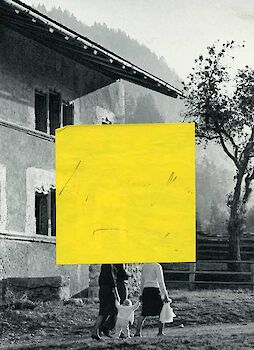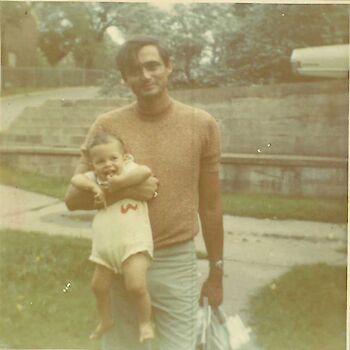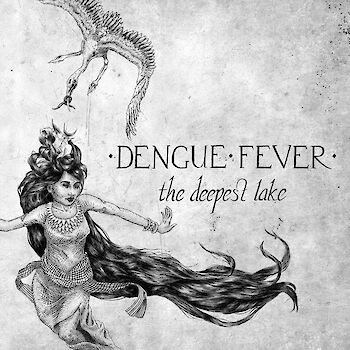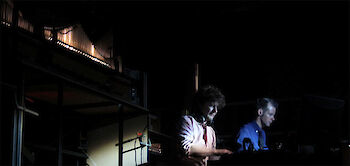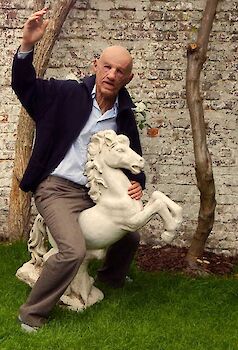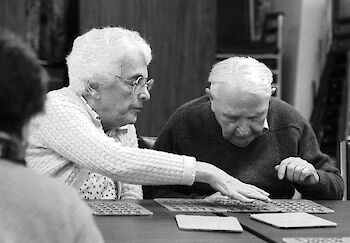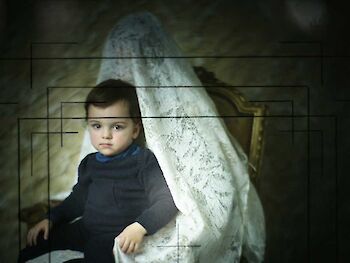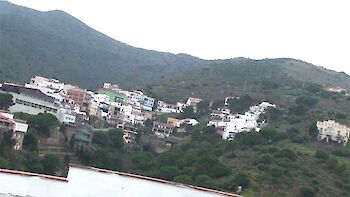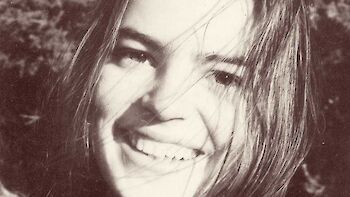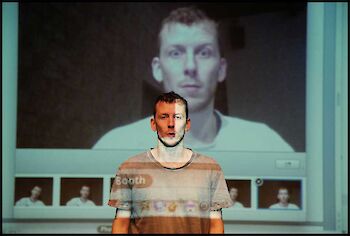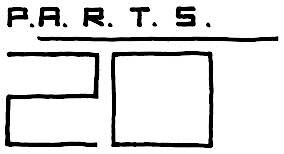"So we make films on high seas. And as we do not have a book of laws, we work in a very dark area, which is memory, because our material is memory."
Pedro Costa
Depuis que Pedro Costa s'est rendu pour la première fois à Fontaínhas, un quartier en périphérie de Lisbonne, il s'est fixé l'objectif de sa vie : documenter la vie des habitants (nombre d'entre eux provenant du Cap-Vert).
Dans Cavalo dinheiro, c'est un Ventura vieux et malade, autrefois personnage principal et majestueux de Juventude em marcha (2006), autre œuvre de Pedro Costa, qui se perd dans ses souvenirs mêlant folie et réalité, présent et passé. Il revit les violences et les rêves gâchés de sa vie et joue avec le jeune Ventura, installé au Portugal pour aller travailler dans la construction comme de nombreux autres.
Pedro Costa reconstitue la vie de Ventura (avec l'Histoire en arrière-plan) pour en faire un voyage mythologique vers les ténèbres et retour.
PT, 2014, 115'
PT spoken, EN subtitles
With: Ventura, Vitalina Varela, Tito Furtado, António Santos, Benvindo Tavares.
Directed by: Pedro Costa
Cinematography: Leonardo Simões, Pedro Costa
Sound: Olivier Blanc, Vasco Pedroso
Editor: João Dias
Sound editing: Hugo Leitão, Ève Corrêa-Guedes
Music: Os Tubarões
Producer: Abel Ribeiro Chaves
Cette soirée marque le lancement d'une série de quelques représentations du film à Bruxelles et à travers la Flandre.
Après trois programmes avec des films plus courts, Zéro de conduite (en collaboration avec Courtisane & le Beursschouwburg) choisit cette fois de se concentrer sur un seul film : le superbe Cavalo dinheiro (2014), le dernier film de Pedro Costa.
Zéro de conduite:
In 2013 the documentary cinematographers Elias Grootaers, Olivia Rochette and Gerard-Jan Claes set up the production and distribution platform Zéro de Conduite. The name is a reference to Jean Vigo’s 1933 film of the same name, a lyrical ode to youthful rebellion. During the past year Zéro de Conduite presented three evening programmes. A film evening with music by Joachim Badenhorst, an evening about the film Chuyen tu te (The Story of Kindness or How to Behave) (1985/1987) by the Vietnamese documentary maker Tran Van Thuy and a programme on (performing, creating, expressive, talking, caressing, stealing,...) hands: Schaffende Hände. http://www.zerodeconduite.be/
Courtisane:
As a festival and platform to showcase film, Courtisane makes a resolute choice for adventure and reflection. Courtisane’s programmation constitutes a kaleidoscopic mosaic of styles, media, gestures, languages and emotions; a patchwork of recent and historical works that share an insatiable hunger for experimentation, a personal signature, and a sense of resistance. Courtisane has been organizing a yearly festival since 2002.


